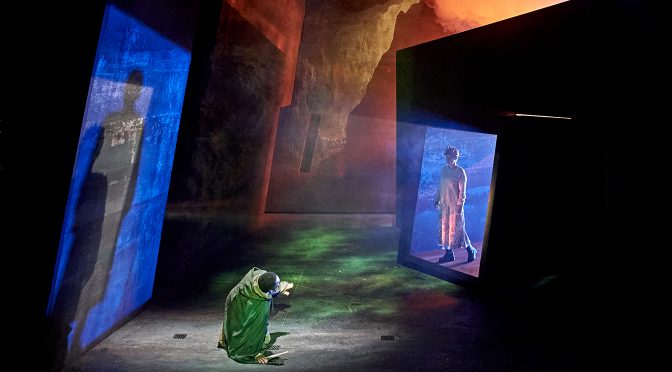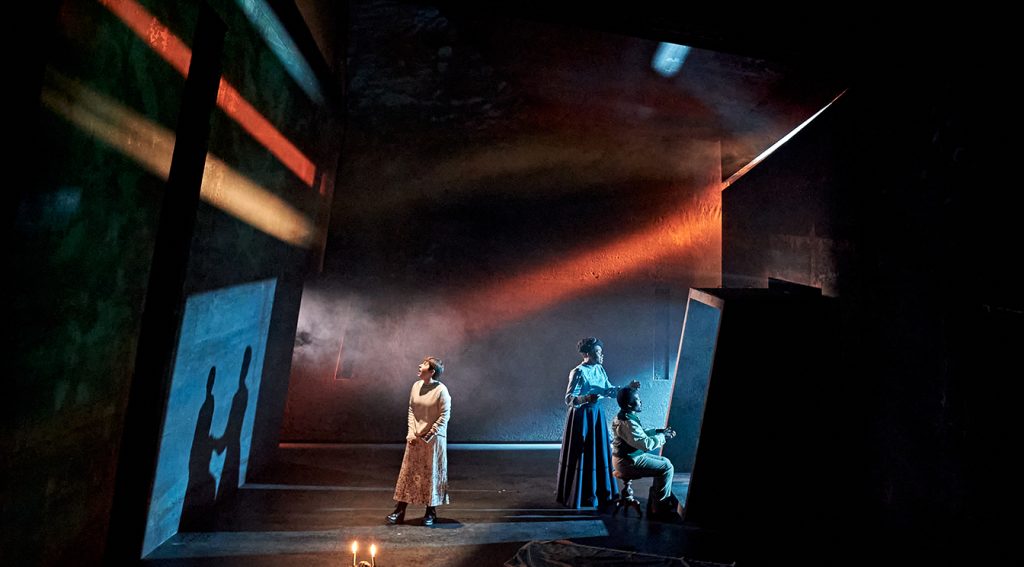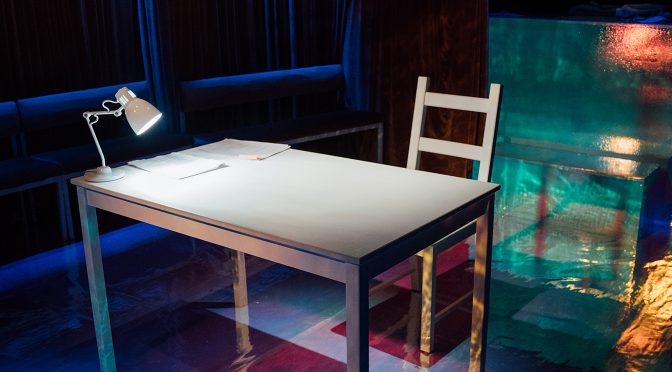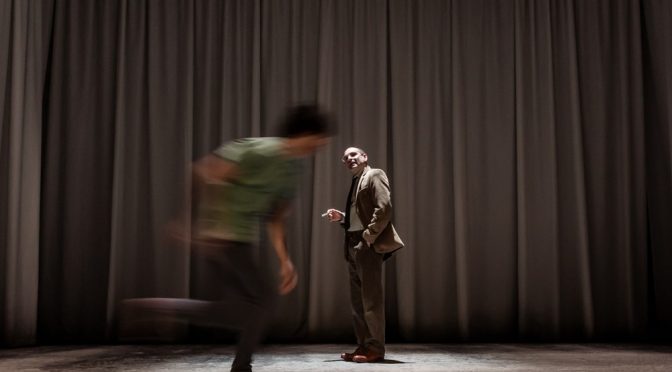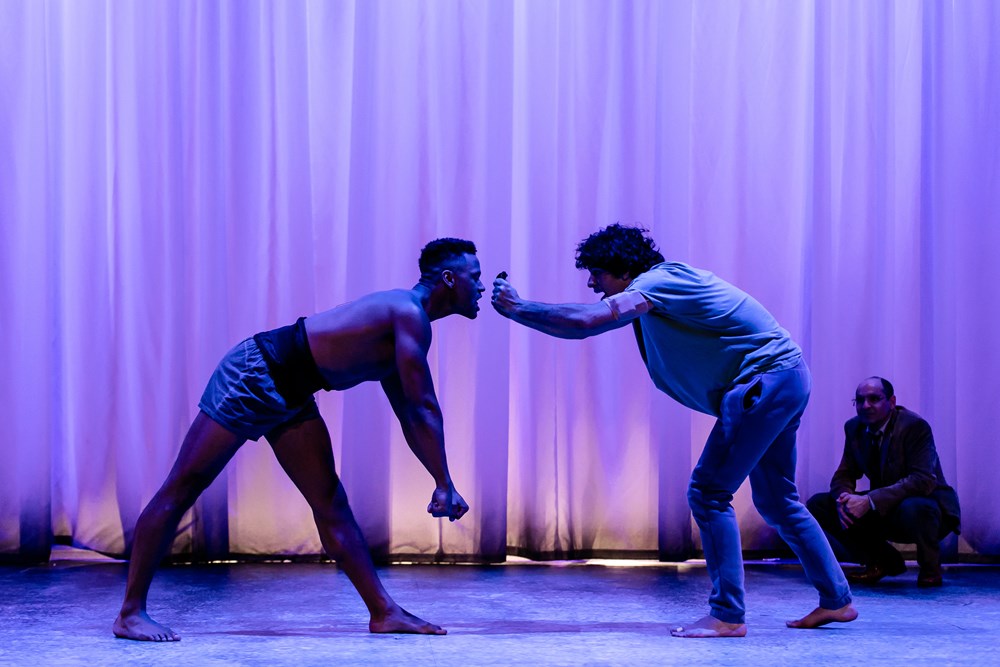This smash hit production, winner of six Olivier Awards last year, is back. It’s easy to appreciate why it’s packing them in as the staging is superb. Retaining the feel of its Japanese source material, the show is just that little bit different for London. And the atmosphere is great. Suitable for theatregoers from the age of six, hearing the audience’s delight is almost as much fun as what’s on stage.
An adaptation of the legendary Studio Ghibli’s animation, the story is very simple: two young sisters move to the country when their mother becomes ill (don’t worry – nothing that bad happens). In their new home, they meet a spirit of the woods who comes to comfort and help them… even if he is noisy and smells like mud.
While there are more sad moments that you might expect, the story impresses with its light touch – both the characters and the audience are enchanted by the titular creature. Mei Mac and Ami Okumura Jones give energetic performances as the girls and get a lot of laughs. And they can deliver when it comes to big emotions – having a toddler temper tantrum is a hard act to pull off!
Director Phelim McDermott brings it all the stage with fantastic style. The puppets, designed and directed by Basil Twist, are very big and look very cuddly. It’s possible you might be tempted to buy a toy version helpfully on sale at the theatre. The sets are also fantastic. As well as an appropriate paper-inspired aesthetic, the family home opens up and splits apart to great effect. The house itself can be considered part of the incredible movement direction for the show, credited to You-Ri Yamanaka. An impressive troupe makes the magic happen. Operating as stagehands as well as puppeteers, they are cast as spirits with touches of humour and they provide remarkable personality (considering they’re mostly dressed in black with their faces covered). They don’t compete with the props or puppetry – they complement them.
It’s the pace of the show that sets it apart. There are plenty of slower moments when we’re invited just to enjoy the spectacle. Time is allowed to appreciate Jessica Hung Han Yun and Tamykha Patterson’s gorgeous lighting design, while Nicole T Chang’s work (credited for sound effects and as soundscape designer) adds atmosphere. These almost contemplative moments might try the patience of adults more than children. This isn’t the first show I’ve seen where those being naughty were old enough to know better! But the ones that matter – the real fans – love it. It is great to hear them, and Tortoro, roar.
Until 23 March 2024


